FEATURE Climate emissions from tropical forest damage 'underestimated by a factor of six'
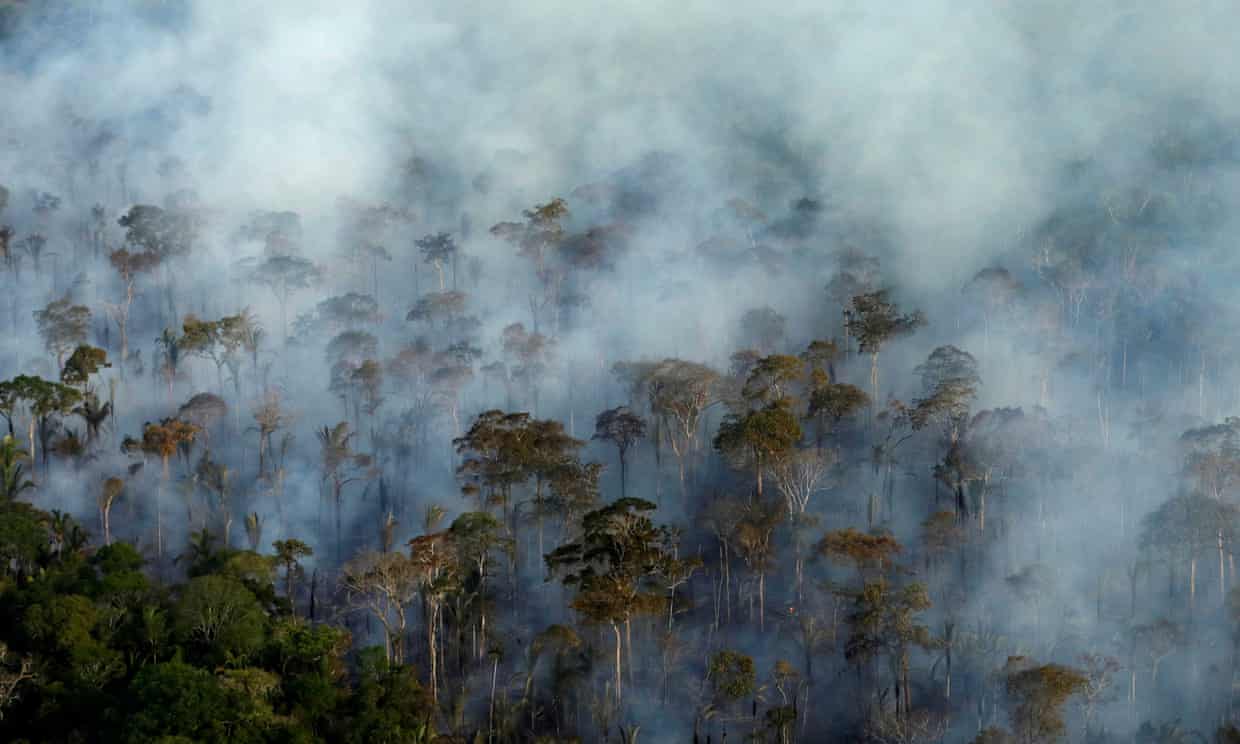
AUSTRALIA – Greenhouse gas emissions caused by damage to tropical rainforests around the world are being underestimated by a factor of six, according to a new study. Research led by the University of Queensland finds the climate impact of selective logging, outright clearing and fire in tropical rainforests between 2000 and 2013 was underestimated by 6.53bn tonnes of CO2. The numbers are likely conservative, and also did not include emissions from other woodlands or the massive boreal forests in the high latitudes of the northern hemisphere. Study co-author professor James Watson of the University of Queensland and the Wildlife Conservation Society said: “We have been treating forests as pretty one-dimensional, but we know degradation impacts carbon. The bottom line is that we knew the numbers would be big, but we were shocked at just how big.” Watson said the numbers used for tropical rainforests were “conservative”, adding, “this is a carbon time bomb and policymakers have to get to grips with this”. READ MORE GLOBAL Extent of human encroachment into world's protected areas revealed
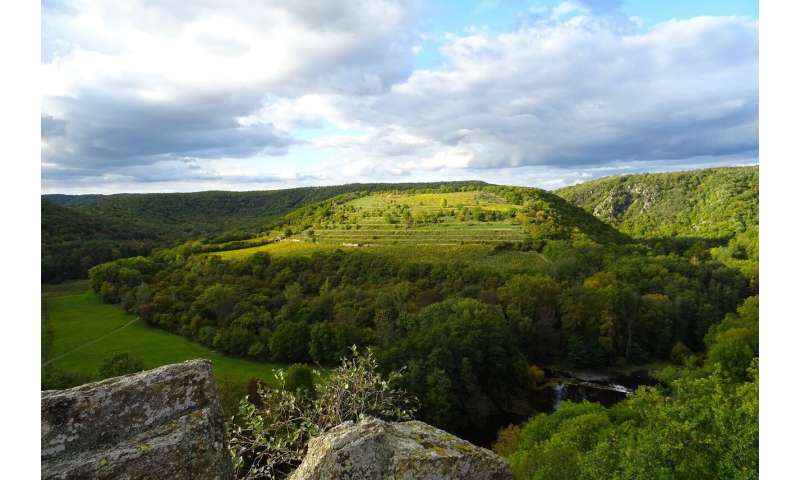
U.K. – A study of human activity within thousands of conservation spaces in over 150 countries suggests that—on average across the world—protected areas are not reducing the "anthropogenic pressure" on our most precious natural habitats. Protected areas are vital to preserving diverse life on Earth, as well as mitigating climate change by conserving carbon-sequestering vegetation, say Cambridge scientists. They argue that the findings show the effects of chronic underfunding and a lack of involvement of local communities. "Rapidly establishing new protected areas to meet global targets without providing sufficient investment and resourcing on the ground is unlikely to halt the unfolding extinction crisis," said lead author Dr. Jonas Geldmann from the University of Cambridge Conservation Research Institute. The research, published recently in Proceedings of the National Academy of Sciences, is by far the largest analysis of its kind to date. Scientists used satellite evidence of "night lights" and agriculture, as well as census and crop yield data, to assess levels of human encroachment in 12,315 protected areas between 1995 and 2010. READ MORE AFRICA How Earth Observation Data Is Saving The Mangrove Ecosystem In Sierra Leone
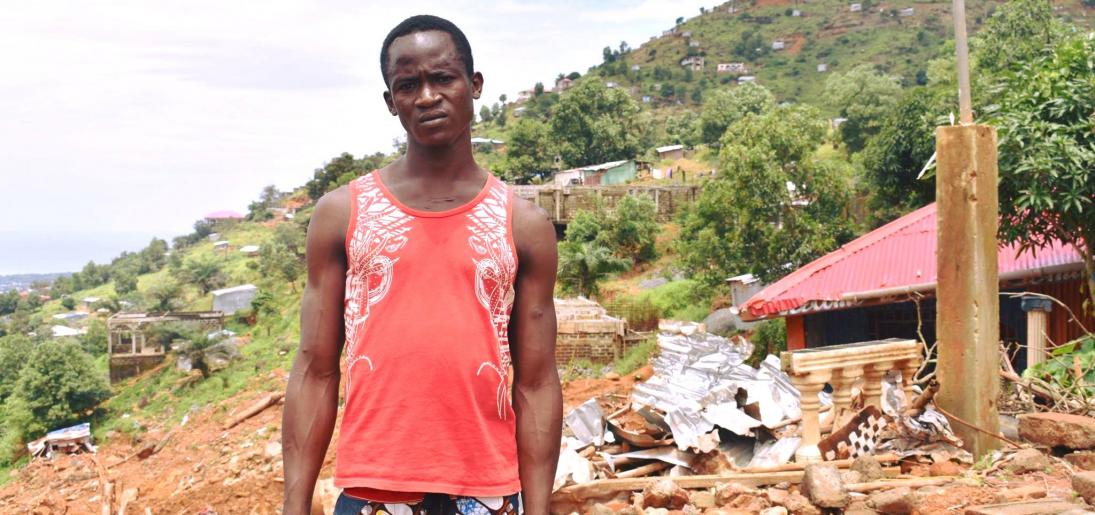
SIERRA LEONE – Mangroves are groups of trees and shrubs that live in coastal intertidal zones. Mangroves stabilize the coastline and provide a critical ecosystem for fish and other organisms, thus making them important lifelines for human and other species alike. But the mangroves in Sierra Leone are disappearing due to coastal erosion. Human activities around the mangroves have led to landslides and the destruction of homes along the shoreline. As some of the land on the shoreline sinks, the tides rise and erode groves of trees, making it difficult for more trees to grow. In 2017, flooding in Freetown led to landslides, which destroyed homes and other property, and caused the deaths of around 1,000 people. Sierra Leone must preserve its mangroves so the trees can continue to serve as protection from disasters and provide livelihoods to communities who live on the shorelines. Sierra Leone’s Environmental Protection Agency (EPA) is helping to save the mangrove ecosystem using Earth observation (EO) data. READ MORE Kenya issues smart ID cards to protect fishing and forests
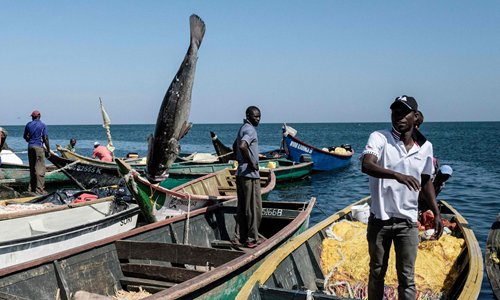
KENYA – Fishing communities on Kenya’s north coast will be the first to benefit from “smart” identity cards aimed at distinguishing genuine fishermen and loggers from poachers who raid waters and cut down mangroves vital to ease climate change threats. Each government-issued Mvuvi card – the word means “fisher” in Swahili – features a photo and fingerprint taken from its registered owner. Authorities will be able to read the cards using smartphones loaded with communications software that allows short-range wireless data transfers. Officials hope the cards, being used first in Lamu County, home to what the government says are about 60% of Kenya’s protected mangrove forests, will boost security and curb illegal fishing and logging. “There are people who pretend to be fishermen going out to sea but they are doing illegal logging of the mangroves,” Samson Macharia, commissioner of Lamu County, told the Thomson Reuters Foundation in a telephone interview. READ MORE AMERICAS Oil spill threatens vast areas of mangroves and coral reefs in Brazil
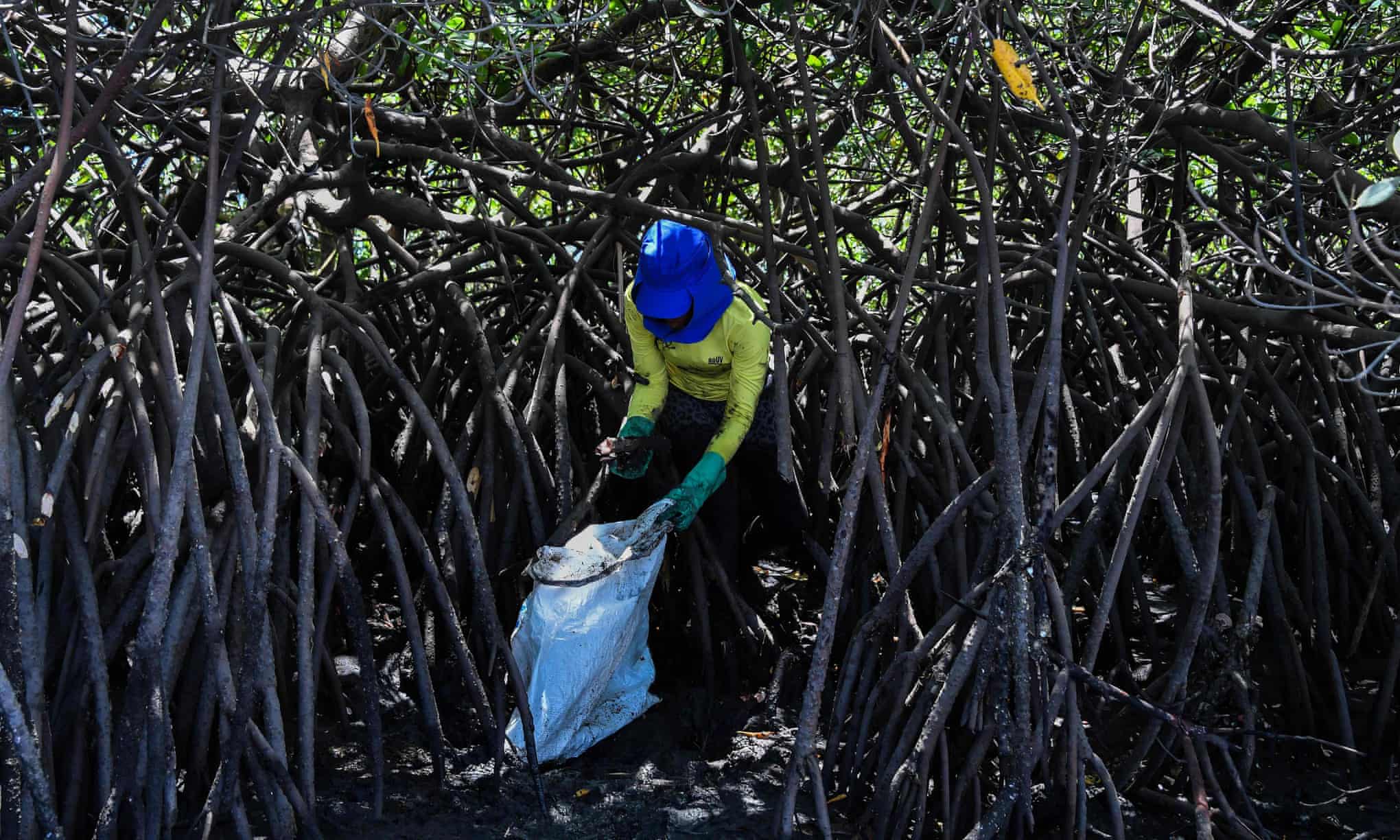
BRAZIL – Hundreds of kilometres of mangroves and coral reefs, as well as humpback whale breeding grounds, are under threat from an oil spill that has polluted more than 2,400km of Brazil’s north-eastern coast in the last two months. The Brazilian Navy, which has deployed 8,500 personnel, 30 ships and 17 aircraft in the cleanup operation, said this week that 4,200 tonnes of oil have been removed from beaches, amid fears by scientists that some has already entered the food chain. “There are still many indirect impacts that have not yet been properly shown,” said Guilherme Dutra, director of Conservation International’s marine programme in Brazil. “The risk of contamination of the food chain is very high, especially in areas directly affected.” The government of President Jair Bolsonaro initially struggled to react to the spill, leaving volunteers to clean up. On Wednesday it staged Brazil’s biggest-ever oil auction for ultra-deep-water rights, which raised $17bn (£13bn) – a disappointing shortfall on the $26bn the government had hoped for. READ MORE Florida mangroves can reduce flooding and insurance costs, new study shows
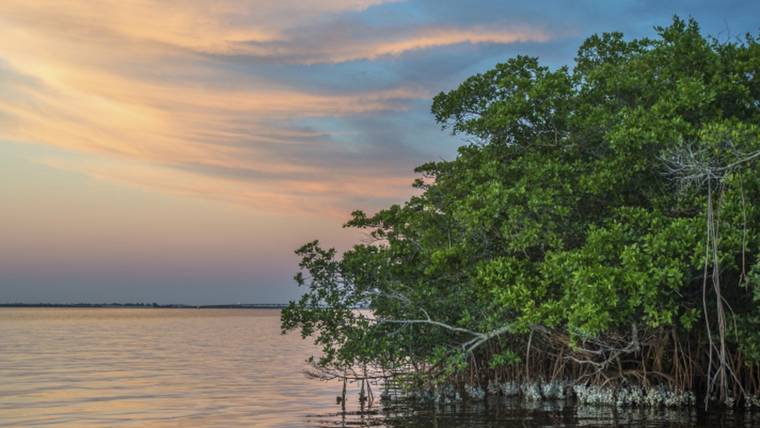
USA – Scientists have known for years mangroves can help prevent flood damage along Florida coastal areas, but the researchers behind a new study hope insurance companies will include mangroves when assessing risks and in turn save counties money. The study, conducted by the Nature Conservancy Florida chapter, analyzed mangroves and if they can be used to measure benefits for insurance companies that assess coastal properties and coastal infrastructure. Mangroves, along with other coastal ecosystems such as salt marshes, beaches and coral reefs offer protection from coastal storms, flooding and surges, said Laura Geselbracht, the senior marine scientist at the Nature Conservancy's Florida chapter. According to the Nature Conservancy's website, mangrove forests have numerous benefits including improving water quality, capturing carbon dioxide and greenhouse gases, and providing a habitat for wildlife. The study led by researchers from the University of California Santa Cruz, partnered with the Nature Conservancy and Risk Management Solutions, a risk modeling company, which has an industry-standard model to assess risks and damages following storms. READ MORE ASIA Choked by Coal: The Carbon Catastrophe in Bangladesh
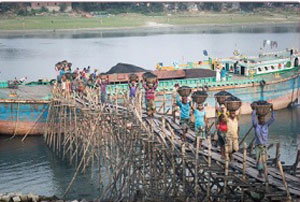
BANGLADESH – Massive coal-based power expansion in Bangladesh is set to propel it into the ranks of the world’s worst polluters, says a major new report out today. The expansion not only threatens global climate targets but promises to further aggravate catastrophic environmental insecurity within a country where floods, cyclones, droughts and pollution have already taken thousands of lives. ‘Choked by Coal: the Carbon Catastrophe in Bangladesh’, exposes foreign-led finance as the driving force behind plans for 29 coal-fired power stations, an expansion that has seen Bangladesh leap, within just 3 years, from 12th to 6th in terms of global coal power under development. If built, these plants would increase the country’s existing coal capacity 63-fold, from 525MW today to 33,200MW. Groups within Bangladesh are outraged. “Building polluting and out-dated coal-fired power stations when the rest of the world is switching to renewables is a colossal act of self-sabotage,” said Bangladesh Poribesh Andolon (BAPA). “UNICEF has already linked climate change to devastating floods, cyclones and other environmental disasters threatening the lives and futures of more than 19 million children in Bangladesh,” said Dr. Abdul Matin, General Secretary of BAPA. “The proposed coal expansion will see this country being led further down a devastating path.” READ MORE 9th Southeast Asia Conference on Business & Human Rights

PHILIPPINES – Between 27-30 October 2019, representatives from indigenous peoples’ organisations, civil society and National Human Rights Institutions from across Southeast Asia came together in Subic Bay, the Philippines for the 9th Southeast Asia conference on human rights and business. This year’s event focussed on land conflicts resulting from renewable energy projects such as solar and wind farms, hydropower and agro-commodity farming for use in biofuel production, as well as the potential positive impact that renewable energy projects can have when led by, and initiated by, indigenous communities themselves. The forum included panels exploring the gendered impacts of land struggles, as well as a panel on Special Economic Zones – an increasingly popular mechanism in Southeast Asia for promoting investments – and their impacts on indigenous peoples’ rights. This latter panel built on the discussions at last year’s event in Thailand. READ MORE Thailand seeks clarity on scrapping of US trade preferences

THAILAND – Thai government and business leaders are seeking clarification from the United States about the planned suspension of $1.3 billion (39.2 billion baht) in trade preferences, ostensibly because of failure to curb labour abuses in the fishery industry. The suspension, to take effect on April 25, will focus on products for which the US is a relatively important market, but where Thailand accounts for a relatively small share of US imports, the office of the US Trade Representative (USTR) said in a statement. Eligibility of all Thai seafood products for the Generalized System of Preferences (GSP) will be revoked due to “longstanding worker rights issues in the seafood and shipping industries”, the statement said. Areas where Thailand was said to remain weak are protection for freedom of association and collective bargaining. Thailand in recent years has taken a number of steps against fishing industry abuses, prompting the European Commission to lift its threat of a ban on Thai seafood. Trade under the GSP between Thailand and the US totalled $4.8 billion in 2018.READ MORE Spend your Water Festival at Mangrove Festival

THAILAND – THE upcoming Water Festival will be celebrated in a big way again in the capital this year, with a massive influx of people from the provinces to the capital for three days. The legion of boat races will turn the city centre into a vortex of vibrancy, with the many programmes to be held in tandem with the annual Water Festival. However, for those who want to spend time helping the community instead, you have a new option — the Mangrove Festival is cropping up with its third edition this year. It’s a communal festival organised by groups of youth with the aim to raise awareness on the impact of development in mangrove swamps and to promote eco-tourism. The ‘Mangrove Festival’ will be running for four days at Koh Kong province from Nov 9-12, the same days as Independence Day and the mammoth Water Festival. Mangrove Festival director Mot Kimry called mangrove trees a fence to protect the loss of biodiversity on the coastline. It is a nursery for fish and other aquatic life which also enables fishermen to earn a good income living off the sea. However, mangroves are being endangered in recent times. The rising sea level is a threat to the growth of mangrove which is an income resource for villagers in Koh Srolao, a small island in Koh Kong province. READ MORE Bali mangrove bay is now a conservation zone, nixing reclamation plan

INDONESIA – Bali’s mangrove-rich Benoa Bay is now legally off-limits for any reclamation or development activities, following the government’s designation of the area as a maritime conservation zone. Spanning some 1,400 hectares (3,460 acres) in southern Bali, the bay was in 2014 rezoned from a conservation area to a public zone under a decree by then-president Susilo Bambang Yudhoyono, a move seen at the time as clearing a path for future reclamation and development. Indonesians in Bali and other cities have since opposed every proposed development project in the bay, especially an ambitious plan by PT Tirta Wahana Bali Internasional (TWBI), a property development unit of Indonesian tycoon Tomy Winata’s Artha Graha conglomerate. The developer proposed building artificial islands covering half of the bay, which would host a multibillion-dollar complex featuring hotels, restaurants, entertainment venues and a convention center.READ MORE LAST WORD Dear MAP Friends, Our talk just got featured on TED's homepage, and you're going to love it:
VIEW HERE. Also, we added MAP as one of our partners: VISIT OUR SITE Cheers,
Ashwin 
Ashwin Naidu, Ph.D.
Co-founder + CEO
FishCat.org
Like this newsletter?
Pease consider donating to MAP to keep it going.
Giving could never be easier | ACTION ALERTS PETITION – NO new coal power – protect local people and wildlife!
SIGN OUR PETITION PETITION – Help stop the advance of oil palm plantations in Gabon!
SIGN THE PETITION PETITION – Don't trash coral reefs for the cruise industry! – TAKE ACTION PETITION – Sea turtles or condominiums?
Sand mining and construction work would wipe out a marine biodiversity hotspot and destroy the livelihoods of local people, who have not been consulted. Please SIGN! PETITION – Save Penang! Reject the 3-Islands Reclamation!
The lack of public consultation and detailed information about the project is shocking in view of the size of proposed reclamation which is 4,500 acres or 7 square miles
PLEASE SIGN
PETITION – Save Pulau Kukup National Park – second largest mangrove island in the world. Sign The Petition Like this newsletter? Pease consider donating to MAP to keep it going. Giving could never be easier 
69 million tons of carbon stored thanks to mangrove restoration, as demonstrated by the new Mangrove Restoration Map VIEW MAP HERE 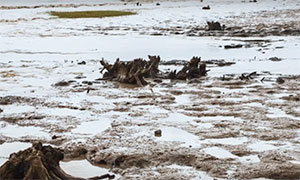
Restoring The Natural Mangrove Forest
Watch movie 
Community Based Ecological Mangrove Restoration in Rufiji Delta VIEW VIDEO Video: Mangroves for the Future – A look bacK. As the latest phase of Mangroves for the Future (MFF) draws to a close, this video highlights some of the project’s most successful initiatives – from local women supporting national park management in Viet Nam to an island in the Maldives that has become a model for waste management, and everything in between. View Here WANT TO GET INVOLVED?
Follow and Join MAP!
   
Like this newsletter? Pease consider donating to MAP to keep it going. Giving could never be easier 

VOLUNTEER OPPORTUNITY 
MANGROVE ISSUES Want to learn more about mangroves?
Our short presentation will give you a better understanding of the issues we are working to solve. WATCH PRESENTATION What is CBEMR? Easy to follow fact sheet – CLICK HERE What is EPIC? – The Ecosystems Protecting Infrastructure and Communities (EPIC) project: the role of ecosystems as protective barriers against climate induced hazards MANGROVES APP AVAILABLE
A pictorial field guide for easy identification of various mangrove species and learning about the mangroves ecosystem. CLICK HERE View MAP’s uploaded Videos at MAPmangrover’sChannel
Question Your Shrimp Consumer/Markets Campaign!
WATCH VIDEO Mangrove Restoration in Asia – Watch Short Video The Value of Mangrove Forests View Video CBEMR Experience Exchange MAP 2017 English Subtitles
VIEW THE VIDEO Mangroves: Guidebook to Malaysia – Click Here
Mangrove rehabilitation in Asia – Local Action and cross-border Transfer of Knowledge for the Conservation of Climate, Forests and Biodiversity VIEW VIDEOS HERE SHARE MAP'S VISION
CLICK HERE to watch short introductory video. Together we can work "at the roots of the sea". Our short documentary, Reducing the Risk of Disaster through Nature-Based Solutions : Mangroves
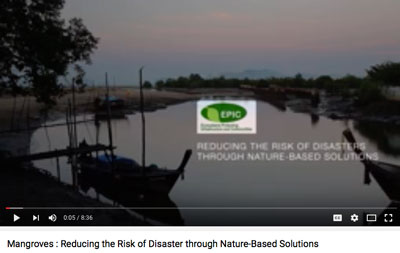
Exclusive Interview with Alfredo Quarto, Co-Founder and Executive Director of Mangrove Action Project – See more
Marvellous Mangroves Curriculum The Marvellous Mangroves Education Forum is an online hub for those utilizing the Marvellous Mangroves (MM) Curriculum. It gives students, teachers and anyone interested in mangroves, the opportunity to learn and share ideas themed around the curriculum, to connect and communicate with others around the globe whilst exploring mangroves from your computer or on the go. VISIT 
The award-winning Marvellous Mangroves (MM) curriculum educates children on the importance of mangroves and their ecological functions, teaching them about modern challenges and mechanisms for sustainability. VIEW VIDEO Marvellous Mangroves Curriculum in Bangladesh – WATCH VIDEO
MARVELLOUS MANGROVES IN BRAZIL
En Portuges 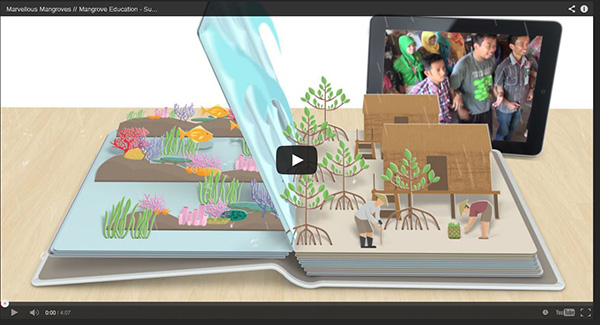
Marvellous Mangroves – A Curriculum-Based Teachers Guide. FOR MORE ON MAPs AWARD WINNING CHINA MANGROVE CURRICULUM VISIT

VIMEO SHOW
VISIT OUR "MM" WEBPAGE Check out our presentation for more details on Marvellous Mangroves Read this 10 page history of the development of MAP’s educational curriculum VIEW DOCUMENT
Article in Canada's Green Teacher Magazine – Read More
Like this newsletter? Pease consider donating to MAP to keep it going. Giving could never be easier 
Green Planet Fundraising Assists MAP – LEARN MORE
Volunteer Opportunities with Mangrove Action Project CLICK HERE
"Question Your Shrimp" Campaign Question Your Shrimp- Don't Buy or Sell Imported Tropical Shrimp! Sign the Petition Learn more about the affects of the shrimp industry on mangroves by visiting our blog
Editor’s Note: Mangrove Action Project’s Executive Director, Alfredo Quarto was interviewed about shrimp by Green Acre Radio’s Martha Baskin
LISTEN TO INTERVIEW Sign the Consumer's Pledge to avoid imported shrimp
Not yet a MAP News subscriber?
Click here to subscribe. Note to Our Readers: We strive to keep active links in our newsletter. However, due to circumstances beyond our control, occasionally links to stories may become broken. If you find a link to a story is not functioning, please cut and paste the headline into your browser search bar. In most cases you should be able to locate the original story.
|



























